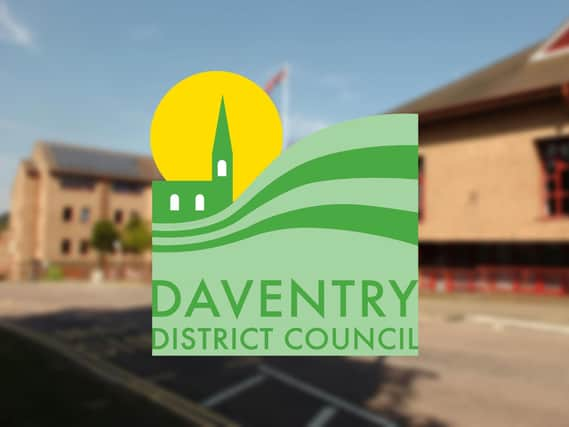Daventry committee to write to Prime Minister over councillor home addresses being public


The Appeals and Standards Committee will urge the Prime Minister to make ‘a prompt decision’ on whether to adopt a national recommendation that candidates standing for or accepting public offices are not required to disclose their home addresses on their Register of Interests.
The recommendation was made in the Committee on Standards in Public Life’s report ‘Local Government Ethical Standards’ relating to registers of members’ interests, stating that regulations be ‘amended to clarify that a councillor does not need to register their home address on an authority’s Register of Interests’.
Advertisement
Hide AdAdvertisement
Hide AdA report compiled by the council’s monitoring officer Tony Gillet states: “A recent members’ development session looked at current trends in standards. Increased toxicity and disrespect, fear of violence or intimidation towards politicians was raised as a pertinent issue – albeit actual risk was acknowledged to be low. Concern focused on the availability of personal addresses and other contact information.
“The Committee on Standards in Public Life – having studied toxicity and threat – has already recommended that the legal requirement to disclose home address on a member’s Register of Interests is removed. In the same recommendation, it called for the same approach in respect of candidates for public office – but this had been implemented already via new Parliamentary regulations.
“The Committee is therefore advised to call for a prompt decision on the Register of Interests part of that recommendation, by agreeing to the Chairman writing to the Prime Minister.”
Mr Gillet said that until such changes were made, he would continue to err on the side of public revelation unless there is ‘a compelling case of threat or risk of violence or intimidation’.
Advertisement
Hide AdAdvertisement
Hide AdThe contents of the report were discussed at the latest virtual meeting of the standards committee on June 9. They also discussed the availability of personal contact details for councillors on their website.
Steve Loades, a member of the public who acts as an independent person on the committee, said councillors should be ‘careful’ about how distant they make themselves look.
He said: “Historically it has always been known by councillors that they declare their addresses and be contactable, so to remove that is quite a big change. I think it’s important that we know whether the person we are voting for is local or is distant.
“And when one is hiding behind a government email address one can be remarkably invisible. Over the course of years I have made contact with a number of councillors and when you email their personal address you almost always get a reply of some sort, whereas if you email the district council address, some are good at replying but some are remarkably poor. I don’t think declaring your postcode would do any harm whatsoever and would give people a fair idea of where you live.”
Advertisement
Hide AdAdvertisement
Hide AdCouncillor Jonathan Harris questioned what potential impact not having home addresses on their Register of Interests could have on issues such as voting on planning applications.
And on the issue of contact details, he added: “Some councillors do give the council address as their details and I understand the reasons, but I don’t think it’s very good if you want to get hold of someone quickly.”
But Councillor Amy Howard outlined how personal circumstances had led her to ask for the address of where she lived to no longer be publicly available. She added: “The individual councillor should have a choice in this. Speaking as someone who has their address hidden I think they should have a right. They should always be contactable by other means, but it can be very frightening when someone comes to your door.”